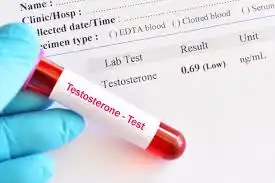When it comes to testosterone, there’s no one-size-fits-all answer — and the number on your lab results may not matter as much as you think. While many men obsess over their testosterone levels, doctors say that how you feel is often more important than any precise figure.
Understanding “Normal” Testosterone Levels
Testosterone levels are not only highly individual, but also fluctuate throughout the day. That’s why doctors typically test levels early in the morning when testosterone tends to be at its peak.
What’s the Standard Range?
According to many physicians, a normal testosterone level falls between 264 and 1,000 nanograms per deciliter (ng/dL). Anything below 264 is considered low, while levels above 1,000 are high. But even within that range, context matters. A man with a level of 310 ng/dL might feel completely fine, while someone at 350 could be experiencing significant symptoms.
“It’s not all about the numbers,” says Dr. Paul Gittens, a board-certified urologist and founder of the Rockwell Centers for Sexual Medicine and Wellness. “We have to look at symptoms alongside lab results.”
What Influences Testosterone Levels?
There’s a long list of factors that can affect your testosterone levels — some within your control, others not. And low levels don’t always mean you’ll have symptoms. Your body’s sensitivity to hormone shifts can vary greatly from someone else’s.
Common Influencers
- Age — Testosterone levels typically decline by about 1.6% each year after your 30s.
- Weight — Obesity is a major contributor to low testosterone, in part because excess fat increases estrogen and suppresses testosterone production.
- Medications — Chemotherapy, steroids, and opioid use can lower testosterone.
- Health conditions — Chronic diseases like HIV, thyroid disorders, and hypertension may all affect testosterone levels.
- Injury or dysfunction — Testicular injury or pituitary gland issues can also disrupt hormone production.
Is Higher Testosterone Always Better?
There’s a misconception that more testosterone equals better performance or masculinity. But doctors warn against that thinking. “Just because your testosterone is very, very high doesn’t mean you have a better libido or anything,” says Dr. Justin Dubin, a men’s health expert.
When High Becomes Harmful
In fact, unnaturally high testosterone — especially from steroid use or unsupervised hormone therapy — can lead to:
- Reduced sperm count
- Elevated blood pressure
- Mood swings and aggression
- Insomnia
High levels are rarely natural. If they are, the cause may be an adrenal or testicular tumor. That’s why regular monitoring and medical oversight are crucial.

What If My Testosterone Is Too Low?
Low testosterone — or “low T” — doesn’t automatically mean you need treatment. Some men with below-average levels feel fine and don’t experience any symptoms at all. Doctors emphasize that treatment decisions should be based on both symptoms and lab results.
When to Take Action
If low testosterone is causing issues such as:
- Decreased libido
- Fatigue or low energy
- Depression or mood swings
- Loss of muscle mass
- Difficulty concentrating
— it may be time to discuss your options with a healthcare provider. Treatment can include lifestyle changes, such as improved sleep, exercise, stress management, and diet adjustments. Hormone therapy may also be considered depending on the cause and severity of symptoms.
Should You Get Your Testosterone Checked?
Doctors agree that unless you’re having symptoms, you don’t need to worry about your testosterone number. But if you’re experiencing noticeable changes in mood, energy, sex drive, or physical performance, it might be worth testing.
Diagnosis and Next Steps
To get an accurate diagnosis, physicians usually conduct two separate blood tests on different days — ideally in the morning. If levels are low and symptoms are present, your doctor will work with you to rule out causes and build a treatment plan.
“Too much of a good thing can be a bad thing,” says Dr. John Lynam, an endourologist. “We’re not treating numbers — we’re treating people.”
Don’t Ignore the Signs
One barrier doctors frequently encounter is stigma. Many men feel embarrassed to bring up symptoms related to sexual health or energy levels. But as Dr. Dubin puts it, “We can’t help you unless you come to see us.”
Testosterone is only one piece of a complex health puzzle. Knowing where your levels stand — and how they relate to how you feel — can be a powerful tool in maintaining long-term wellness.



